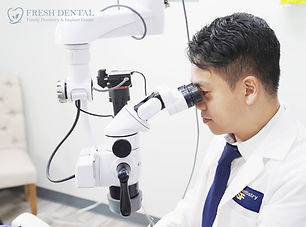Learn about Preventive dentistry
At Fresh Dental, our goal is always to help patients keep their smiles whole and healthy for life, and one way we achieve this goal is to prevent major oral health issues by scheduling preventive dentistry exams every six months. During these dental checkups, our hygienists remove plaque and tartar buildup, and the dentist carefully examines patients’ smiles screening for signs of common oral health issues. Before you leave, we’ll create an ongoing dental care plan to help you keep your smile healthy.

What We Do

Dental Exam & Cleaning

Flossing & Brushing

Oral Cancer Screenings

Fluoride Treatment
Dental Exam & Cleaning
At Fresh Dental, our goal is always to help patients keep their smiles whole and healthy for life, and one way we achieve this goal is to prevent major oral health issues by scheduling preventive dentistry exams every six months. During these dental checkups, our hygienists remove plaque and tartar buildup, and the dentist carefully examines patients’ smiles screening for signs of common oral health issues. Before you leave, we’ll create an ongoing dental care plan to help you keep your smile healthy.
Through a routine cleaning, we make sure to remove all plaque and tartar, ensuring no cavities or decay develops in your teeth. During the exam, he carefully reviews all the areas of your mouth, including your teeth, gums, tongue, and throat for any concerning symptoms.
We will also pay close attention to your bite and jaw as well as ask if you are experiencing any discomfort or sensitivity. From there, he can recommend a personalized treatment plan.
Flossing & Brushing
The American Dental Association recommends cleaning between your teeth daily with an interdental cleaner (like floss). Cleaning between your teeth may help prevent cavities and gum disease. Cleaning between your teeth helps remove a sticky film called plaque. Plaque contains bacteria that feeds on leftover food or sugar in your mouth. When that happens, it releases an acid that can eat away at the outer shell of your teeth and cause cavities.
Plaque that is not removed by brushing and cleaning between your teeth can eventually harden into a rough substance called tartar (or calculus). Tartar collects along your gum line and can lead to gum disease. Once tartar forms, only your dentist can remove it. Although some have questioned the benefits of cleaning between your teeth, using an interdental cleaner (like floss) is an essential part of taking care of your teeth and gums.
Oral Cancer Screenings
According to the American Cancer Society’s recent estimates, approximately 51,540 people in the US will be diagnosed with oral cancer and 10,030 people will die of these cancers each year. That is about 6 people diagnosed every hour, and one life taken every hour. And according to the Oral Cancer Foundation, "Historically the death rate associated with this cancer is particularly high not because it is hard to discover or diagnose, but due to the cancer being routinely discovered late in its development."
When diagnosed in its early stages, oral cancer is highly treatable. A simple and painless oral cancer screening could literally save your life! You can expect an oral cancer screening to consist of a thorough visual and physical examination to look for signs of cancer or precancerous conditions in your mouth, including abnormal patches of white or red, or certain lesions.
An oral cancer screening is not just a medical exam, but an opportunity for you to speak with your dentist about any fears or concerns, or ask for advice about reducing your risk. At Fresh Dental, we always encourage our patients to be open about any oral health concerns so that we can ensure that all your dental experiences with us are comfortable, pleasant, and beneficial to you and your oral health.
Fluoride Treatments
Professional fluoride treatments generally take just a few minutes. The fluoride may be in the form of a solution, gel, foam or varnish. Typically,it is applied with a cotton swab or brush, or it is used as a rinse or placed in a tray that is held in the mouth for several minutes. After the treatment, you may be asked not to rinse, eat or drink for at least 30 minutes to allow the teeth to absorb the fluoride and help repair microscopic carious areas. Depending on your oral health status, fluoride treatments may be recommended every three, six or 12 months.
Your dentist also may recommend additional preventive measures if you are at moderate or high risk of developing caries. These measures may include over-the-counter or prescription therapeutic products such as fluoride mouthrinses, gels or antibacterial mouth rinses. Look for products with the American Dental Association’s Seal of Acceptance. Products dis-playing the ADA Seal have been examined care-fully by the ADA’s Council on Scientific Affairs and have met its criteria for safety and effectiveness.







